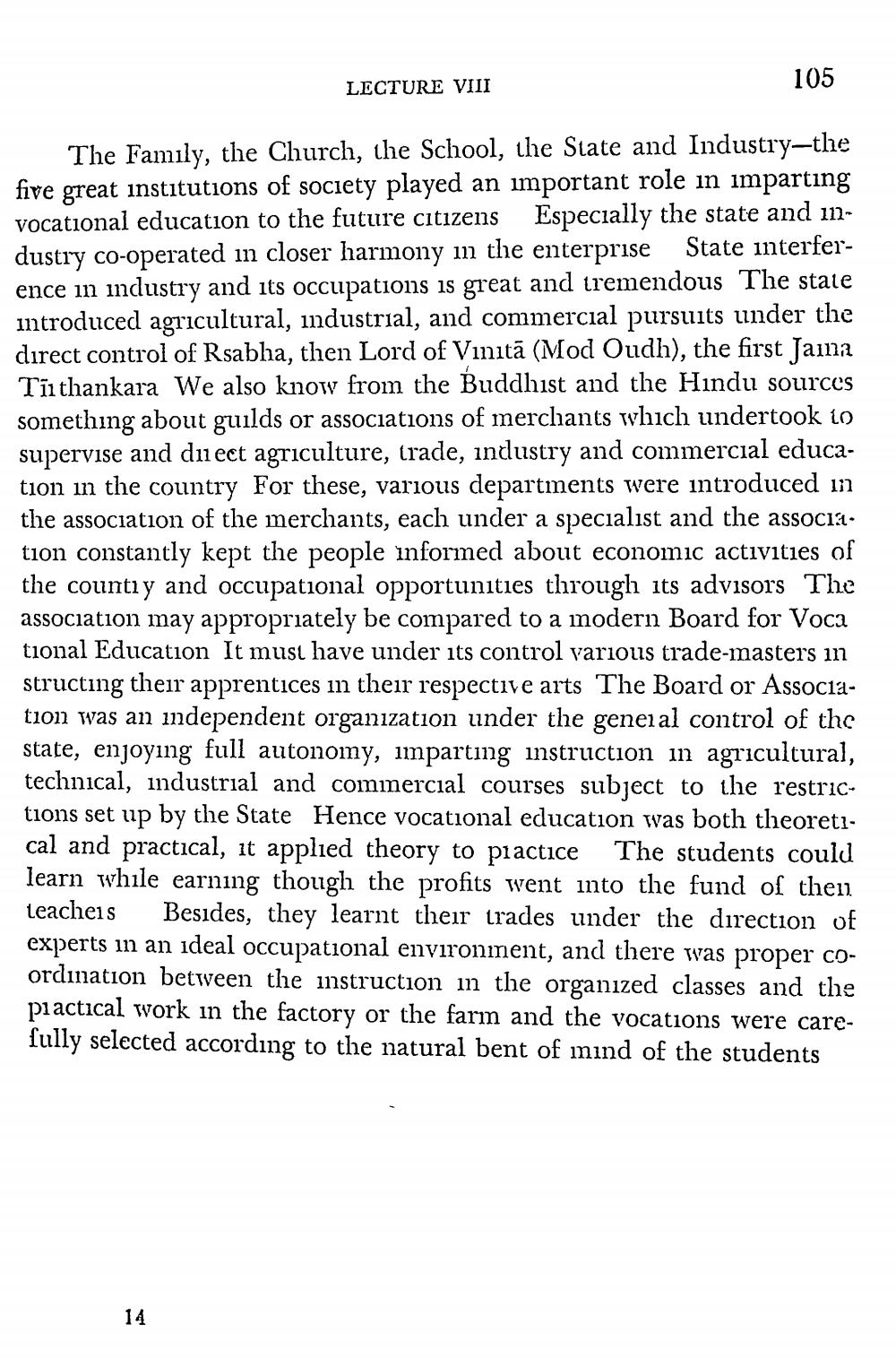________________
LECTURE VIII
105
The Family, the Church, the School, the State and Industry-the five great institutions of society played an important role in imparting vocational education to the future citizens Especially the state and industry co-operated in closer harmony in the enterprise State interference in industry and its occupations is great and tremendous The state introduced agricultural, industrial, and commercial pursuits under the direct control of Rsabha, then Lord of Vinitā (Mod Oudh), the first Jaina Tīıthankara We also know from the Buddhist and the Hindu sources something about guilds or associations of merchants which undertook 10 supervise and duect agriculture, trade, industry and commercial education in the country For these, various departments were introduced in the association of the merchants, each under a specialist and the associa. tion constantly kept the people informed about economic activities of the countıy and occupational opportunities through its advisors The association may appropriately be compared to a modern Board for Voca tional Education It must have under its control various trade-masters in structing their apprentices in their respective arts The Board or Association was an independent organization under the general control of the state, enjoying full autonomy, imparting instruction in agricultural, technical, industrial and commercial courses subject to the restrictions set up by the State Hence vocational education was both theoretical and practical, it applied theory to practice The students could learn while earning though the profits went into the fund of theni teacheis Besides, they learnt their trades under the direction of experts in an ideal occupational environment, and there was proper coordination between the instruction in the organized classes and the practical work in the factory or the farm and the vocations were carefully selected according to the natural bent of mind of the students
14




